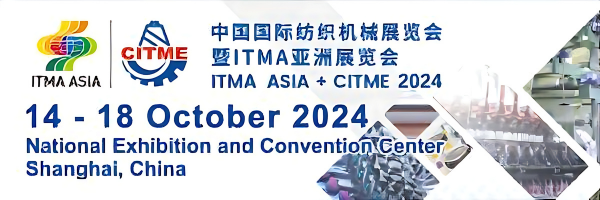As the African Development Bank celebrates World Fashion Day, we take this opportunity to reflect on the potential of the Fashion industry to create value and wealth across the continent, with women and youth at the heart of this change.
We believe that the textile and clothing industry can drive Africa’s industrial transformation and create some of the millions of jobs we need. A stable future depends on the development of labor-intensive sectors like manufacturing, services and agriculture. Within the manufacturing sector, the Bank knows that job creation “from new activities” such as fashion, design, film and food industries – also known as creative industries – will result in new trade patterns for African countries.
These creative industries are particularly attractive to increasingly interconnected youth eager to explore wider cultural frontiers through social media and the internet. They bring their African culture and creativity as a unique selling point: creative industries bring economic benefits, as well as serve as a vehicle to further African regional integration and identity.
Today, let us focus on Fashion.
The textile and clothing industry presents a lot of potential for value added benefits and job creation. It is estimated that up to 600% of value can be created along the cotton value chain: from cotton production, spinning and twisting into yarn, to weaving and knitting into fabric, followed by dying, printing and designing. The fashion industry is a very profitable sector, from production to marketing, and additional jobs and wealth can be created every step of the way. Furthermore, this industry is composed of a majority of micro, small and medium enterprises (MSMEs), which can rapidly generate decent jobs – both skilled and unskilled – especially for youth and women.
According to UNIDO, in communities across the world, women have protected and nurtured rich cultural value and traditional designs. Investing in developing their skills to generate revenue in these areas leads to greater economic productivity and independence with social and political benefits for their communities. Since women are actively engaged throughout the fashion value chain, we see great potential for economic empowerment in rural areas as well as in urban centers.
In addition to value-added benefits and job creation, we see this particular sector as a great means to foster local content and identity. As Africa embraces industrialization, it must fully engage its human capital and unique craftsmanship. To fully take advantage of the regional and global value chains, each economy needs to enhance its infrastructure, regional integration, policy environment and access to finance.
Incoming investments must engage local actors and artisans to leverage the diversity of African regions and enable long term, structural change. To date, most of the textile and clothing value chain remains in the informal sector. There is tremendous opportunity for development actors to provide these businesses with the necessary infrastructure to transition to the formal economy by supporting their incubation, increasing access to finance, and connecting them to other producers, suppliers and retailers.
Demand for African textiles and garments is increasing globally, and African patterns are gaining recognition as truly fashionable and iconic pieces. International fashion houses are integrating more and more African influences in their latest collections.
International textile manufacturers are turning to Africa as a new source of labor – and – as a growing consumer market. Africa is clearly and quickly taking on a greater role in the global fashion value chain, and it must rapidly industrialize to take advantage of it. Instead of exporting raw materials vulnerable to market volatility, and importing second hand clothes, we must add value to everything we produce, and export finished fashion products.
Ethiopia is a great example. With the objective of generating USD 30 billion in export revenue from the textile apparel and accessories (TA&A) sector by 2030, the country is investing in industrial parks to accelerate textile production and the country’s productivity as well as developing a heavy industry that will allow its full industrialization by 2025. According to The Bank’s Fashionomics Africa Report, almost 80% of the workers employed in Ethiopia’s apparel sector are women. In addition to Ethiopia, the garment sector has been growing in South Africa, Mauritius, Madagascar and across North African countries – but much of the rest of the continent has a long way to go.
The Bank is working through targeted approaches to foster value chain development. Consider Madagascar, where the Bank invested about US$10 million to support the textile industry through the Investment Promotion Support Project. This project includes a US$ 2 million dollar Textile Sector Promotion Support Fund that provides technical assistance to 50 MSMEs (40% led by women) for building organizational capacity and to improve basic processes and technologies.
We continuously raise awareness on strategic sectors for investment, as well as support the Bank’s regional member countries. The TA&A industry must engage in policy dialogue to improve the business environment, facilitate access to finance and build institutional and actor capacity, to succeed.
In this context, the Bank is also rolling out its Fashionomics Africa initiative. Already active in Cote d’Ivoire, Nigeria, Kenya, South Africa and Kenya, Fashionomics Africa is a pan-African program that aims to strengthen the value chain of the fashion sector, by investing in the African textiles, apparel and accessories industry and raising its profile on the international stage. The goal is to connect and strengthen each link in the chain, from producers and suppliers of primary materials, to manufacturers and distributers, and of course, investors. With a focus on MSMEs, Fashionomics Africa seeks to foster an environment that creates quality employment and entrepreneurial opportunities, with increased access to finance, startup incubation and acceleration, particularly for women and youth.
One of the components of the initiative is the Fashionomics Africa Masterclass, intended to equip entrepreneurs and designers with the tools to build and establish a fashion brand, from idea to execution. More than 500 textile, fashion and accessories entrepreneurs have participated in Masterclasses in Nigeria, South Africa and Ethiopia. Some 65% of trainees have been women.
The African Development Bank will continue to ramp up its support to the fashion industry, so that it can make its full contribution to the growth of our economies, as well as give Africa its rightful place in the global cultural and creative landscape.

















